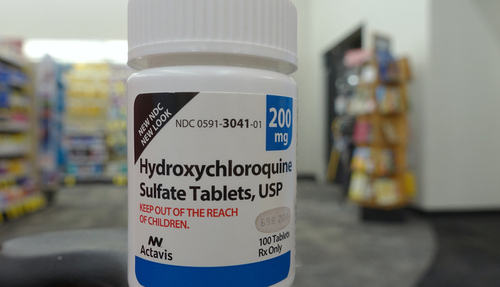
A highly anticipated University of Minnesota study examining the use of hydroxychloroquine among young health care workers found the drug does not prevent symptoms of COVID-19.
The randomized trial primarily examined the use of the drug on 821 young participants with a median age of 40, who received hydroxychloroquine as a post-exposure prophylaxis.
The drug is normally prescribed as an antimalarial or for people suffering from lupus and rheumatoid arthritis. It has been touted for months by President Donald Trump as a potential treatment for the coronavirus, despite warnings from physicians and scientists that hydroxychloroquine can have serious side effects and should not be used for coronavirus treatment outside of clinical trials.
“We feel significantly less optimistic then when we started,” said Sarah Lofgren, a co-investigator at the University of Minnesota Division of Infectious Disease and International Medicine, about the study results.
The U of M researchers were hopeful the drug would work on COVID-19 because chloroquine, a chemical cousin to hydroxychloroquine, is able to attack SARS, or severe acute respiratory syndrome, another coronavirus. However, what happens in the laboratory and in a cell culture does not always translate into success in people, Lofgren said.
Researchers examined healthcare workers before and during exposure to coronavirus. In addition, they studied individuals exposed to COVID-19 based on their household contacts, who may or may not have been a healthcare worker.
The study, published online last week in the New England Journal of Medicine, found that 11.8 percent of participants developed COVID-19 symptoms while on the drug, while 14.3 percent of the vitamin-taking placebo group did as well. This indicated to the researchers that there was no statistical difference in the two groups.
Almost half of the participants who took hydroxychloroquine developed gastrointestinal issues, but they did not report experiencing cardiac problems, a much-publicized potential side effect of the drug. Some side effects of hydroxychloroquine can mimic COVID-19 symptoms. However, the researchers did not test participants prior to the study to see if they had already contracted the coronavirus; they only had to appear asymptomatic.
Do these results mean hydroxychloroquine is no longer a candidate to treat COVID-19?
It’s hard to know, Lofgren said.
“We certainly know that other drugs work at different times of disease progression — such as pre-prophylaxis for HIV exposure — that don’t work at other moments,” she said.
Results from an early treatment trial will be published soon from the researchers.
A third U of M study examines hydroxychloroquine’s use among high-risk health care workers and first responders, such as those working in ICUs and COVID-19 units. Included in that group are anesthesiologists, many of whom are responsible for intubating patients, a procedure that can aerosolize, resulting in a ‘cloud’ of COVID-19.




